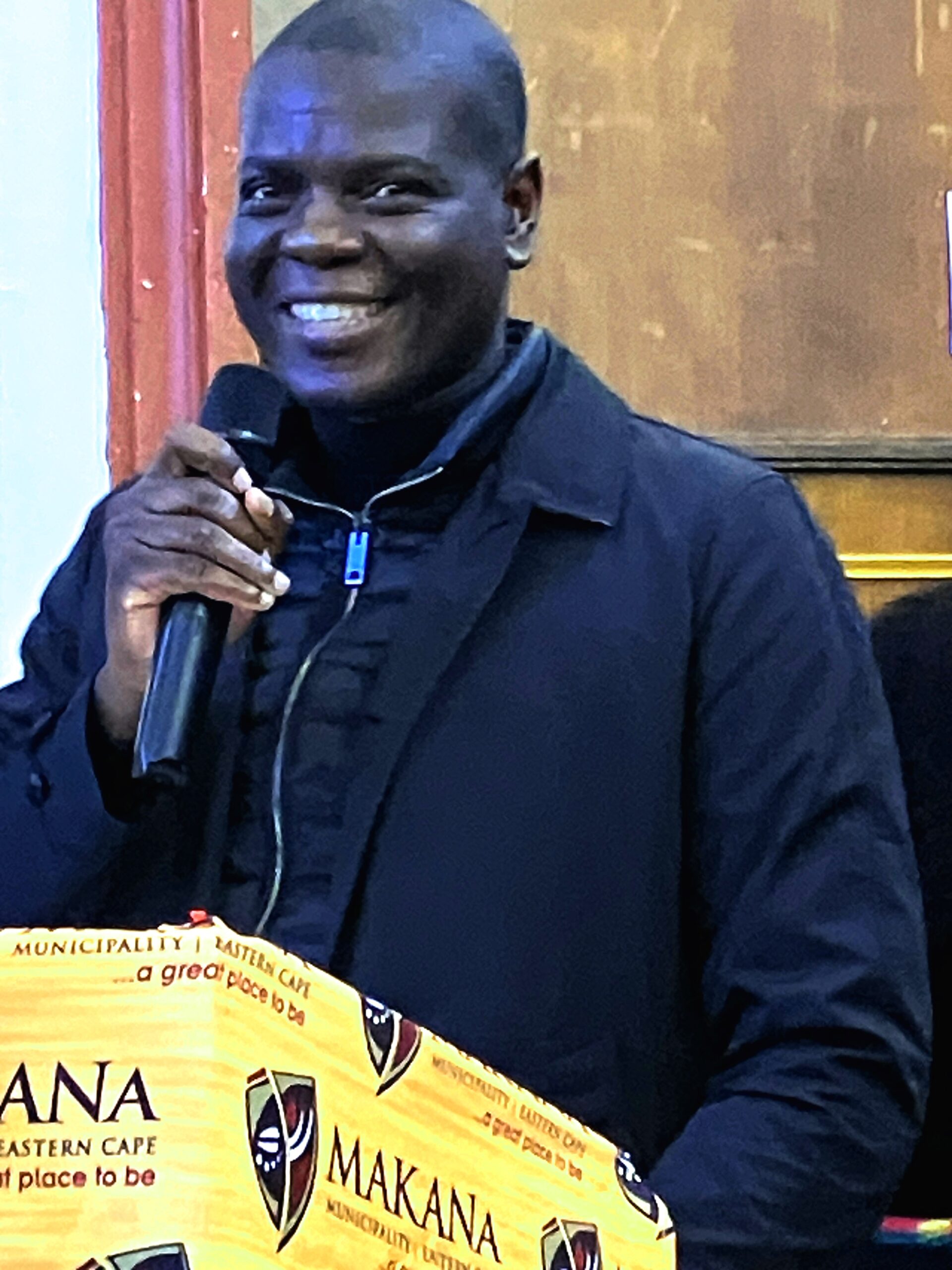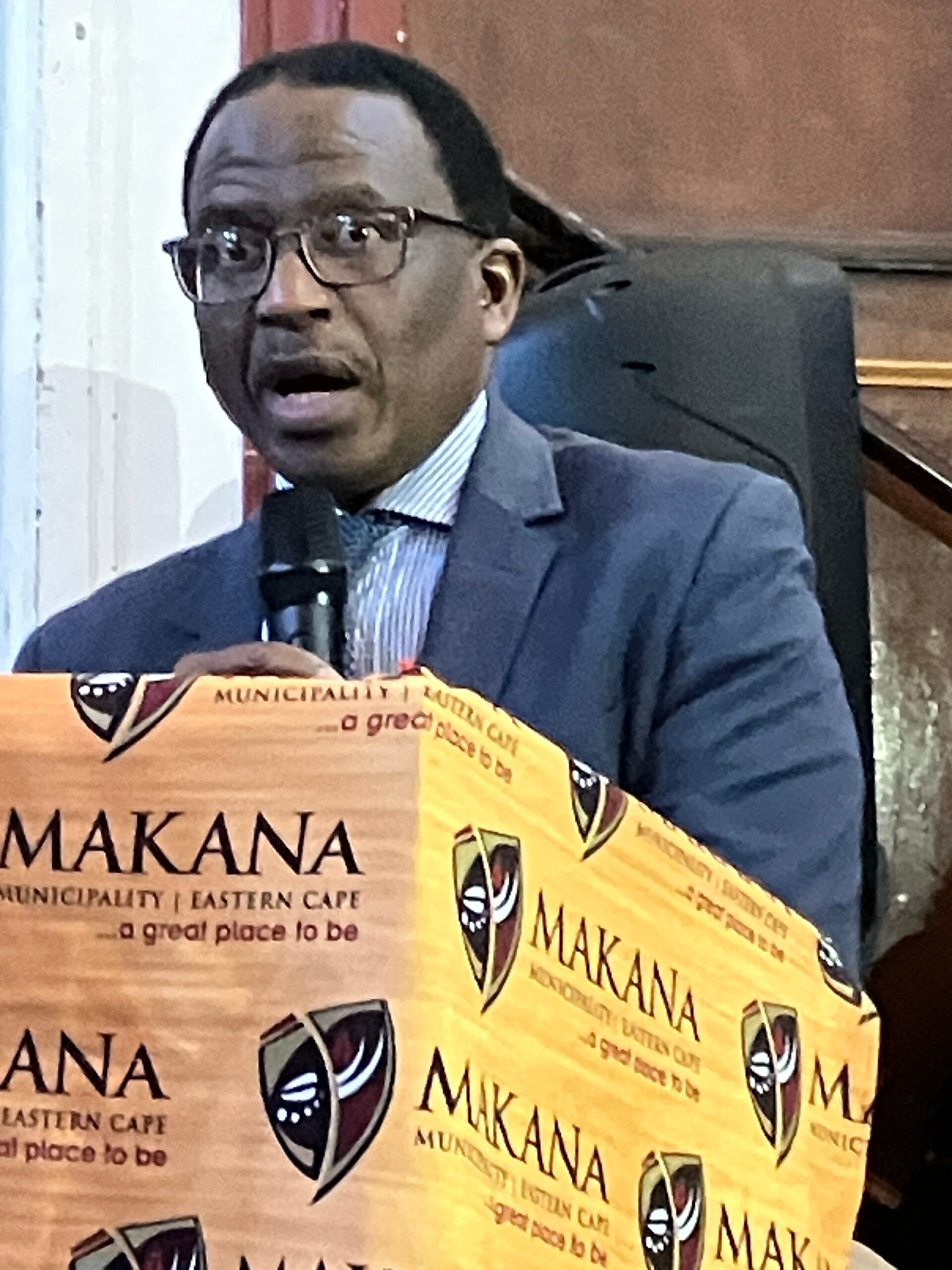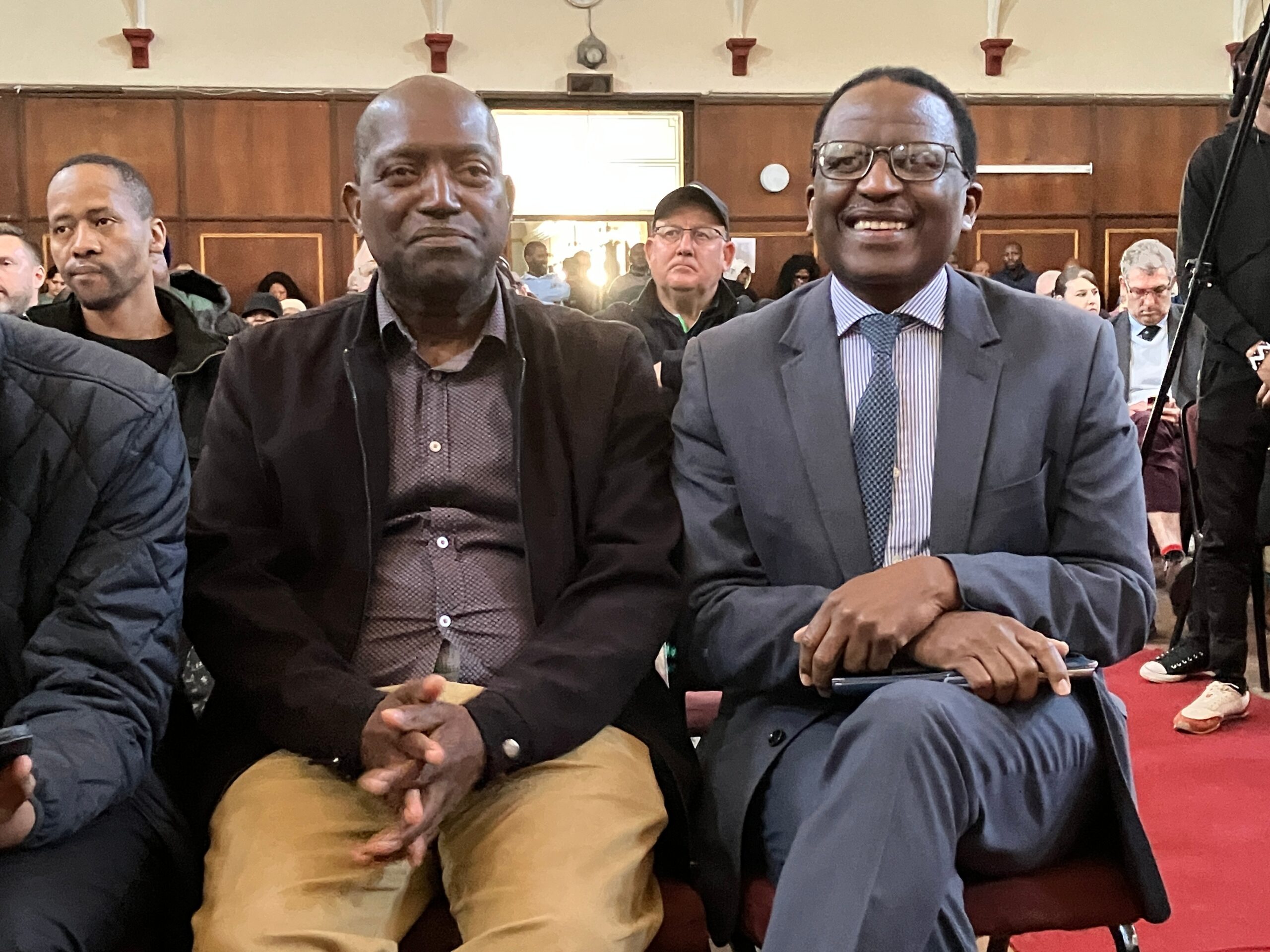By Steven Lang
An incredulous gathering of Makhanda residents erupted in noisy cheers when Justice Minister Ronald Lamola said, “We are not moving the Court from Makhanda. The Court will remain here . . . “ (loud applause).
He hesitated briefly and then threw cold water on the cheers, “The only thing. . . before you clap hands, you need to understand the following. We are not moving the court. The recommendation is to move the Provincial Seat, and the Provincial Seat is not the whole court.
“It’s just the Head Office of the Court, which is the Judge President, to Bhisho” (drowned out by loud booing).

More than 200 sceptical residents of Makhanda met with Lamola at the Makana City Hall on Thursday morning. Makana Executive Mayor, Yandiswa Vara, had called the meeting between the Minister and concerned citizens to discuss the proposed move of the Seat of the High Court to Bhisho. In a rare showing of unity, residents from all walks of life representing every race group in the municipality shared one common objective – “Hands off our city, hands off our High Court”.
Many private citizens, civic organisations, the Makana Municipality, Rhodes University, political parties, and legal fraternities have all made submissions to the Justice Minister opposing the proposed move to the provincial capital.
While residents and several speakers acknowledged the effort the Minister had made in coming to Makhanda to engage with stakeholders, there was some cynicism about Lamola’s claim that it was the first time he had learnt the reasons for their concerns.
The Justice Minister explained that he was now considering an interim report before a final report is published either in August or September. That report will contain recommendations to guide him in taking a final decision.
He pointed out that the interim report is not exclusively about the High Court in Makhanda and cited the problem area of Hammanskraal in Gauteng Province where residents prefer having their cases heard in the North West Province.
Lamola said the rationale for the proposal is the need to rationalise the High Courts nationally because “We have not done that since 1994, and there have been changes since then in terms of the population and impacts on the courts”.
He declined to mention several previous initiatives to move the High Court. However, Rhodes University Vice Chancellor, Prof Sizwe Mabizela, noted that the Hoexter Commission, Chief Justice Arthur Chaskalson and others had done extensive research and all concluded that the High Court should remain in Makhanda, or Grahamstown as it was then called.

Lamola’s main argument in favour of the move centred on access to justice. He used an example of litigants who live in East London and have to go past Bhisho to get to the Makhanda High Court.
Local activist, Philip Machanick, countered this argument saying that access to justice is not simply a matter of geography. He pointed out that people wishing to use the courts in Makhanda had access to vast legal resources of the Law Faculty of Rhodes University.
Undoubtedly the most powerful argument against the move stems from the devastating economic impact of the proposed move. Various speakers quoted the excessively high unemployment figures in the area. Mabizela said an economic impact study had been made and found that “More than 5,000 jobs – direct jobs will be lost. And thousands of jobs in associated services will be lost and the economy of this town will be devastated”.
He added, “The municipality will lose revenue in terms of rates”.
Chair of the Grahamstown Business Forum, Richard Gaybba, stressed that the consequences of the move would not only affect the legal fraternity, but the whole “town would collapse”.
A leader of Makhanda’s youth repeated a warning he had made earlier to the Moseneke Commission investigating the same issue, “Moving the High Court away from Makhanda would be equivalent to a Day Zero, with no prospect of rain anytime soon”.



